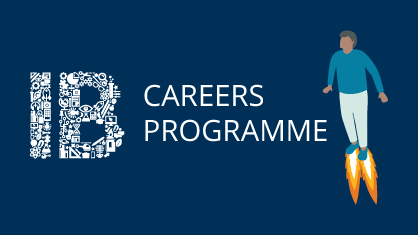
Dive into IB English, where every text, page, and word opens up new horizons of knowledge. IB English sets itself apart from any other high school English course by challenging its students to think globally and critically analyze texts that span cultures and time periods; not just teach about literature and language – rather, this course transforms how they perceive life itself.
IB English’s allure lies not only in its academic rigor but in the unique mix of challenges and rewards it presents to students. Students are invited to explore complex texts ranging from Shakespearean plays to modern poets’ poetry – each chosen for its ability to expand minds and stimulate souls. While embarking upon such a journey may prove challenging, its rewards are incalculable.
Decoding the IB English Curriculum
At its core, the IB English curriculum seeks to foster not only students’ understanding of literature but also their capacity for communicating complex ideas clearly and precisely. Key components include Internal Assessment and Extended Essay that prompt students to engage deeply with texts while sharing their insights.
IB English stands out by emphasizing global perspectives, so students often compare novels from the 19th century with contemporary poems, or analyze how different cultures approach similar topics. This global lens not only broadens students’ literary horizons but also promotes greater empathy and understanding of our globalized society.
Sharpening Analytical Reading Skills
Achieving success in IB English requires cultivating an analytical eye. This involves going beyond surface reading to immerse oneself deeply in the text, noting themes, motifs, and stylistic devices along the way. Ask why the author chose a particular word or phrase; examine what themes or elements are at work; and discover their contribution to the overall meaning of the work.
Practicing reading different genres, from dense prose to lyrical poetry, sharpens these skills. Dissecting a poem by Sylvia Plath can give insight into her use of imagery; similarly, analyzing George Orwell’s “1984” can show how form influences meaning. These exercises not only develop reading skills but also equip students for the rigorous, analytical writing required by IB English.
Crafting Compelling Critical Essays
At the core of IB English is the ability to craft compelling critical essays. A successful essay begins with an insightful thesis statement and is supported by evidence taken directly from the text – evidence that should blend seamlessly into its argument rather than overpower it.
One common pitfall of essay writing is drifting toward summary rather than analysis. To avoid this pitfall, focus on how the text functions–examine how certain narrative techniques or recurring symbols impact it–rather than simply trying to prove a point convincingly. Essays that stand out are those that demonstrate the student’s deep involvement with textual elements.
Navigating Linguistic Nuances
Language analysis is key to unlocking deeper meaning in texts, from diction and syntax to tone and register used by authors. A close reading experience can reveal subtleties that would otherwise remain unnoticed – creating an enriching reading experience.
Multimedia resources, like online lectures or literary podcasts, can be an invaluable aid in exploring these linguistic nuances. Offering fresh perspectives and insights that supplement traditional study methods, engaging with multimedia resources makes language study more dynamic and interactive while deepening students’ appreciation of writing craft.
Leveraging IB English Resources
Modern IB English students have access to an abundance of resources online in today’s digital era, from forums and educational websites, through digital libraries and platforms like Purdue Online Writing Lab (OWL), which offers assistance on essay structure to citation styles; to SparkNotes’ in-depth analyses of texts.
Used appropriately, these resources can provide invaluable support and insights. To get the most out of their use, it’s essential that they be utilized critically as supplements rather than replacements for direct engagement with texts – to deepen understanding while forging personal bonds to literature.
Preparing for Success in Assessments
Preparing to take IB English assessments confidently requires taking an organized, strategic approach to studying and revising. You must become acquainted with each assessment format – from written papers to oral presentations – as well as what each aims to test. Practice can help; reviewing past papers can give students insight into the types of questions asked as well as strategies they should employ when responding.
Time management and stress reduction are also of critical importance. Establishing a study schedule that incorporates frequent breaks for self-care can help students approach assessments with clarity and focus. Keep in mind, though: success academically should never come at the cost of enjoying learning and discovery!
Embracing the Journey
IB English offers students an incredible journey of personal discovery and transformation. This challenging course encourages them to think deeply, analyze critically, and express themselves clearly and insightfully. Students emerge with skills such as analytical thinking, effective communication, and an appreciation of language that will serve them far beyond classroom walls.
As you embark upon this journey, remember that mastering IB English is about more than academic success; it’s about engaging with literature and language in a way that’s engaging and enriching. Let the journey begin – may your exploration of texts open up new horizons for lifelong reading enjoyment!
